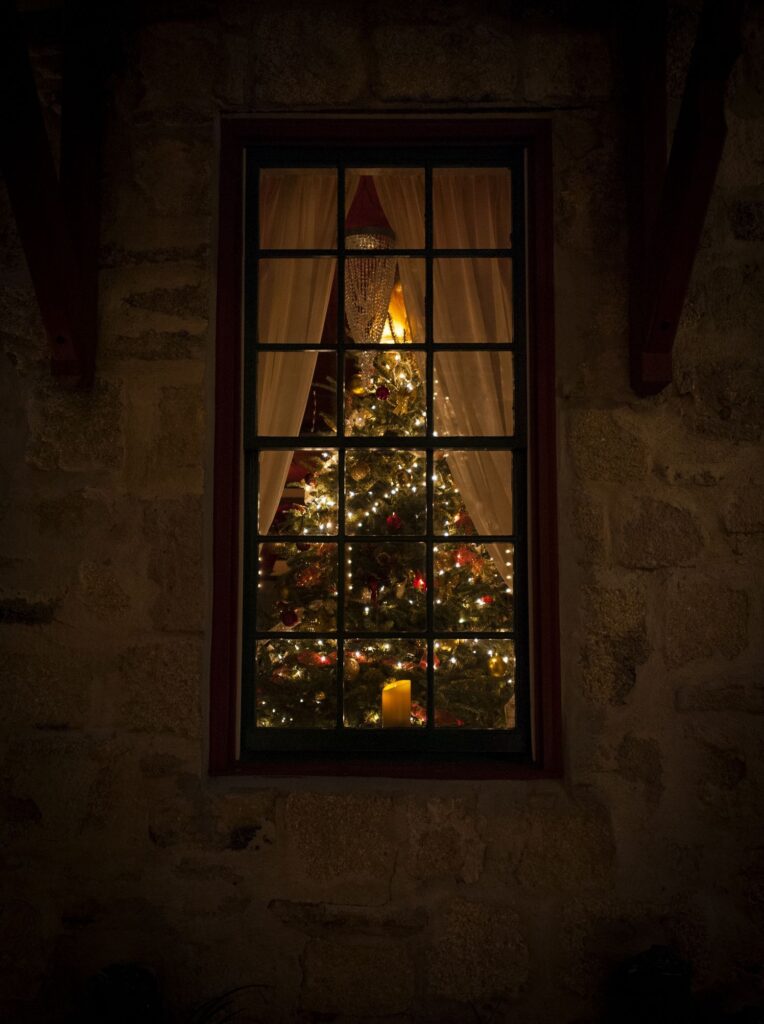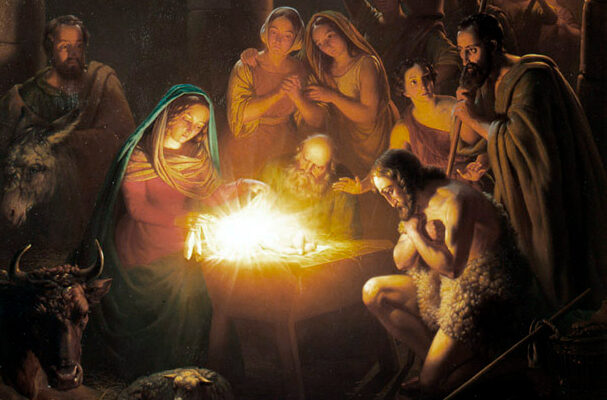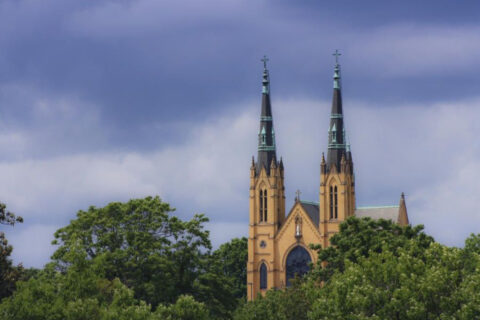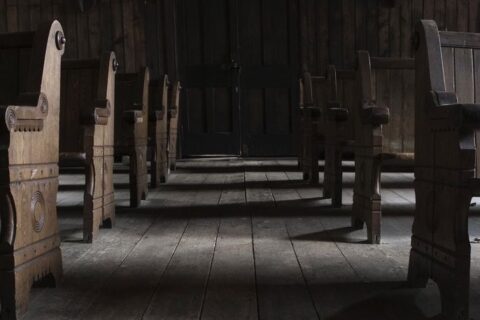As usual, various pagans and atheists find common ground attempting to target Christianity and Christian symbolism, traditions, and values. Every year, the same tired arguments emerge regarding the sanctity of Easter, a variety of Catholic Feast Days, and of course, Christmas. The argument that is most often told by both enemies of Christ and Western Civilization writ large, is the following: Christmas is really the pagan celebration of the Winter Solstice. Given the timing of Christmas, I can see why they would think that way. But they are wrong. Christmas is Christian – Full Stop. Now, let’s explore why.
To begin, the chosen date of Christmas as December 25th was not codified by Roman law, as is often alleged by anti-Christians, at the time of its establishment. Yes, it is true, that the Emperor Constantine did establish the celebration of the birth of Christ. But the date itself predated Constantine by approximately one hundred years. The date was established by Sextus Julius Africanus, an early Christian theologian, who wrote a history on the early Christian Church. In that history, he surmised that Mary, the Virgin Mother of Christ, became pregnant in the Spring of 1 BC – believing the date to be March 25th. Consequently, nine months later, Jesus Christ would be born on December 25th.
Whether Sextus Julius Africanus is right or wrong, is somewhat of a moot point. Jesus Christ was born. Africanus’ logic, based on his personal exploration into Christianity at the time, seems sound, even if the end date is flawed. The Annunciation of the Lord (i.e., the date at which the Angel Gabriel told Mary she was with the child of God) was placed as March 25th. It does not matter that Jesus was more likely born in the summer. The date of choice was not predicated on any desire to perpetuate pagan holidays; it was based on early Christian doctrine.
The December 25th celebration of Sol Invictus, the sun god of the latter Roman period, was not introduced until 274 AD, approximately fifty years after Africanus established Christmas. Thus, it appears that Roman pagans were attempting to steal a Christian holy day, not the other way around. Most likely, losing ground to Christians throughout the Empire, latter-era Roman pagans seemed to have appropriated Christmas as their own holiday and celebrated Sol Invictus with feasts and celebrations – likely to contrast against the more solemn and reserved early Christians, who did not engage in such frivolity at the time when celebrating holy days. This leads us into the next facet of the Christianity of Christmas debate: how it is celebrated.
Many pagans and leftists will further point toward traditions revolving around Christmas – such as the Christmas tree – as evidence of the pagan origins of Christmas. Again, this is wrong. To begin, Christmas was largely ignored as a holy day (holiday) for the first eight hundred years of Christianity. It may have been established as December 25th in 221 AD, and embraced by 336 AD, but it was not the important holiday that it became until the emergence of Charlemagne in the late 8th and early 9th Centuries. Yet, even under Charlamagne, Christmas never takes off quite like it would in the 18th Century. It was simply a religious date within the broader Church – not one in which gifts were passed around or celebratory traditions permeated the holy day. For the better part of one thousand years, Christmas always took a back seat to Easter – the holiest day of the Christian calendar.
As for the Christmas tree, contrary to anti-Western beliefs, it was not an appropriation of pagan Roman or Germanic tradition. The first Christmas trees as we know them were begun in the 16th Century, long after the death of paganism in Europe, and seems to have been a Lutheran introduction – beginning with Martin Luther himself. The Roman feast of Saturnalia, revolving around the Winter Solstice, was celebrated with something akin to modern wreaths, not trees. But the likelihood that ordinary Germans in the 1500s knew how the pagan Romans celebrated Saturnalia is ludicrous. Literacy, let alone ancient Latin literacy, was hardly prolific. Martin Luther is generally regarded as having introduced the evergreen tree lit with a candle to celebrate the eternal life promised by Christ through Jesus’ light. It was a symbolic gesture that caught on, but it really did not gain broader prominence until the 19th Century.

The notion that the Christmas tree was a Nordic pagan tradition is largely derived from the nature worship of Celts and Germanic tribes, but again, (A) their traditions were not written down and (B) there does not appear to have been anything more to pine trees than the fact that they remarkably remained green through winter. There were no religious basis surrounding pine trees to Northern European paganism beyond basic nature worship.
Still, many continue to peddle notions of Christianity as having stolen Northern European pagan traditions. That is a very hard argument to make for one key reason: the Celtic and Nordic pagan faiths were written down through oral traditions conveyed to impressed Irish monks in the 9th and 10th Centuries and eventually codified by Snorri Sturluson in the Prose Edda. Consequently, anything we know about the Nordic and Celtic pagan faiths would have been written by Christians. Most likely, much of that which we know of the Northern European pagan faiths would be influenced by their Christian authors. It would be hard to distinguish where the true pagan faiths end and Christian influences begin.
Returning to the date, there is one critical component that is missed by those who attempt to undermine Christmas as a Christian holy day: for true Christians, the date of Jesus’ birth does not matter – it is the fact that He was born, suffered, died, and resurrected that is most important to Christians. The fact that it is celebrated on December 25th is irrelevant, but it is also appropriate. For all Christians, Jesus Christ is the promise of everlasting life after physical death. The Winter Solstice, the darkest day of the year, is highly symbolic of both the twilight of the human condition (physical death) and darkness of sin. The birth of Jesus Christ, which is celebrated a few days after the Winter Solstice, brings to us a new, re-emerging light and life – conquering both death and sin.
Finally, there is another problem for anti-Western Civilization pagans and leftists as it pertains to attempts to denigrate Christmas. Christianity is unique as a faith. There is truly nothing like it. Every other faith places the burden of salvation upon humans attempting to please a god or gods who have never suffered from human conditions. They have absolutely no idea what it is like to be us. Our God, however, uniquely manifested Himself into a human being.
God, in Jesus Christ, experienced temptation and transcended it. His feet walked the earth. His hands labored with tools. He ate human food… drank water and wine… smelled, tasted, heard, and experienced human life. No other god loved their creation enough to manifest themselves as human beings. The One True God loved His creation so much, that He not only made Himself one of us, He offered us salvation through His sacrifice – not ours. Who would worship gods who have never lived as we do nor loved someone enough to sacrifice for them?
That human experience – unique to Christianity – in which God manifested Himself, walked among us, experienced our pains, and ultimately became the last physical sacrifice for repentance and salvation, began the moment Jesus Christ was born. Today, we celebrate that unique relationship on Christmas. We celebrate the birth of Christ, because His life is a celebration of a unique relationship between human beings and God. Anti-Western Civilization pagans and atheists cannot appreciate that understanding – thus, they try to destroy a date by sowing doubt. Ignore them. The date is irrelevant. The birth of Christ is the important part.
Enjoy your family, friends, and European traditions. Enjoy the birth of Christ and the promise of salvation that comes with His resurrection. Christmas is Christian, because it is grounded in the manifestation of God on Earth – as Jesus Christ – and with Him comes the greatest Christmas gift of all: eternal life.
Nollaig Shona! Happy Christmas!
The son of a recent Irish immigrant and another with roots to Virginia since 1670. I love both my Irish and Southern Nations with a passion. Florida will always be my country. Dissident support here: Padraig Martin is Dixie on the Rocks (buymeacoffee.com)






That was an important message. Even though we Orthodox still observe the traditional Julian calendar, the difference is irrelevant.
I would take the liberty and share another important message. This editorial was originally published in the WSJ in 1947, and it’s been published annually ever since:
In Hoc Anno Domini
When Saul of Tarsus set out on his journey to Damascus the whole of the known world lay in bondage. There was one state, and it was Rome. There was one master for it all, and he was Tiberius Caesar.
Everywhere there was civil order, for the arm of the Roman law was long. Everywhere there was stability, in government and in society, for the centurions saw that it was so.
But everywhere there was something else, too. There was oppression—for those who were not the friends of Tiberius Caesar. There was the tax-gatherer to take the grain from the fields and the flax from the spindle to feed the legions or to fill the hungry treasury from which divine Caesar gave largess to the people. There was the impressor to find recruits for the circuses. There were executioners to quiet those whom the Emperor proscribed. What was a man for but to serve Caesar?
Full editorial: https://www.wsj.com/articles/in-hoc-anno-domini-vermont-royster-editorial-11640296509
Tried to share this article on fakebook. Said it went against community standards-so I copied and pasted the whole thing😂